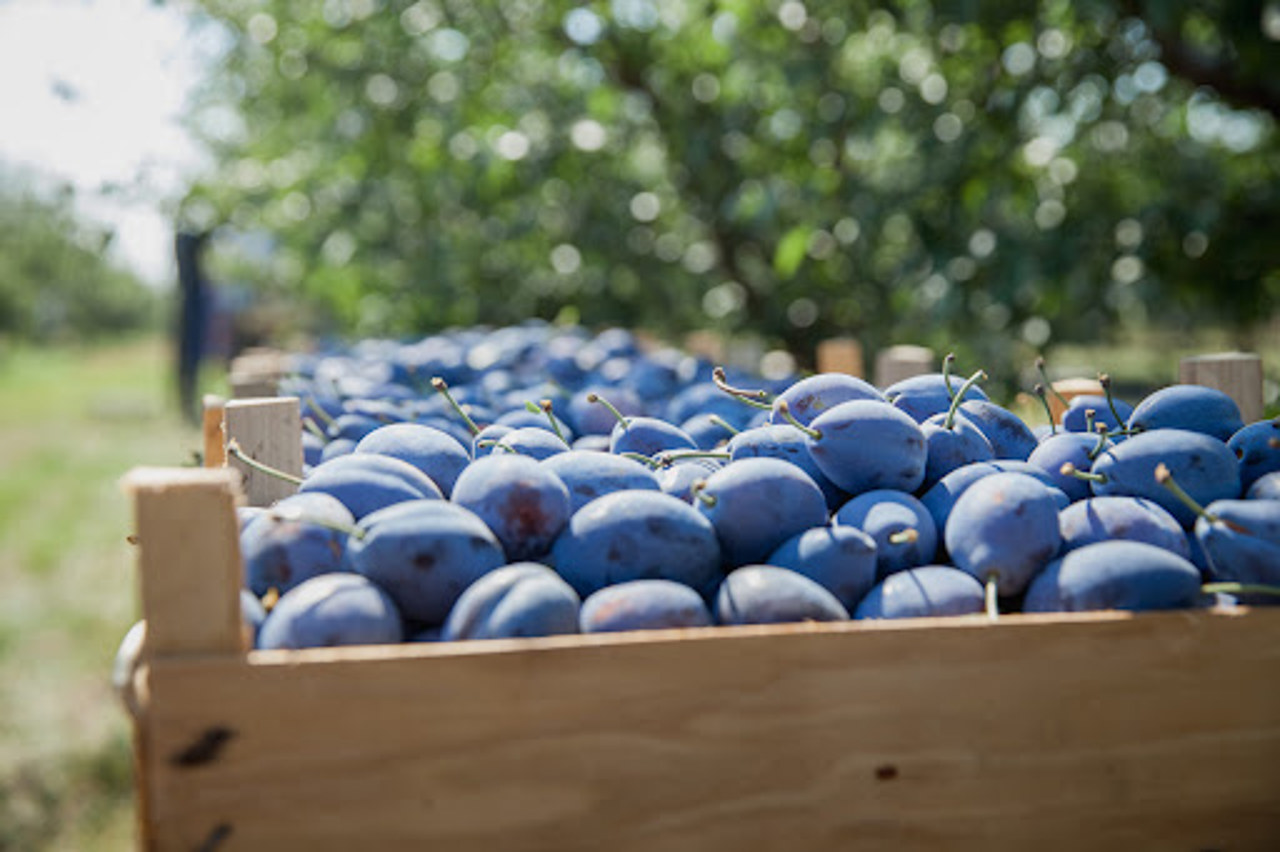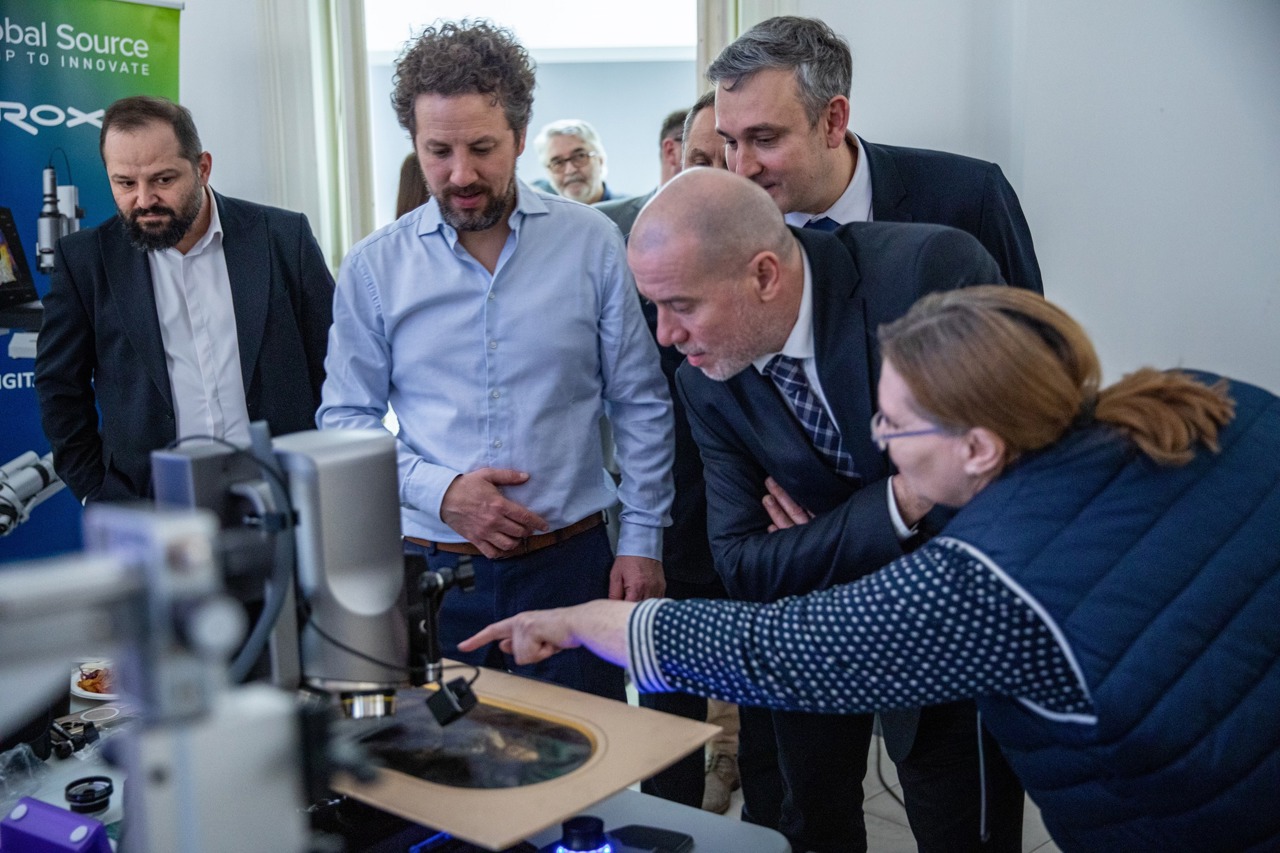Moldova Boosts Fruit Exports with Quality Push
The Moldova Fruct Association, in partnership with USAID, launches the Fruit Quality Improvement Program to enhance the competitiveness of Moldovan fruit exports.

The program targets cherries, apricots, apples, plums, and table grapes. It focuses on training specialists from fruit companies on implementing quality assessment standards and improving communication on these standards throughout the production chain. This emphasis on quality control aims to increase revenue for producers, strengthen trust with international partners, and open doors to new markets. The program highlights the importance of pre-export quality evaluation and proper fruit labelling for consumer information.
Fruit Quality a Priority for Moldova's Booming Export Industry
Fruit quality will be rigorously evaluated before export under a new initiative launched by the Moldova Fruct Association. This mandatory requirement for producers and exporters aims to bolster the competitiveness of Moldovan fruits in international markets.
The Fruit Quality Improvement Program, a collaboration between the Moldova Fruct Association and the USAID Competitive and Rural Resilience in Moldova project, specifically targets cherries, apricots, apples, plums, and table grapes. The program's experts will train specialists from fruit producing and exporting companies on implementing fruit quality assessment standards. This enhanced expertise is expected to significantly increase the competitiveness of Moldovan fruit exports.
"A systematic approach to fruit quality control at all stages of production is essential to meeting market requirements and maintaining stable partnerships with international buyers," emphasised Iurie Fală, Executive Director of the Moldova Fruct Association. Fală's statement highlights the program's focus on addressing a critical challenge faced by the Moldovan fruit export industry.
The program aims to train specialists from companies with export potential to implement a product quality assessment system. This system will not only ensure adherence to international quality standards but also improve communication between departments and customers regarding these standards. This focus on improved communication is expected to reduce customer complaints and strengthen trust with international partners.
The Fruit Quality Improvement Program kicked off with a seminar on assessing the quality requirements of cherries. The seminar attracted 20 specialists from fruit producing and exporting companies across Moldova. These participants, members of the Moldova Fruct Association, are committed to implementing the quality standards they learned during the training.
"The seminar provided valuable insights and practical training," said Carolina Baran, the founder of a participating company. "We are confident in our ability to produce and deliver high-quality, safe fruits. Consistent adherence to high-quality production is the key to securing long-term partnerships in the international market." Ms. Baran's statement underscores the program's potential to empower Moldovan fruit producers to compete effectively on a global scale.
Another participant, Vasile Pavliuc, manager at SRL, highlighted the importance of the program's focus on practical skills. "Learning to operate fruit quality measurement equipment was extremely useful," Pavliuc remarked. "The training has emphasised the critical role of pre-delivery quality evaluation through the issuance of quality reports." Mr. Pavliuc's comments illustrate the program's emphasis on equipping participants with the practical tools necessary to implement effective quality control measures.
High-quality fruits command premium prices in the international marketplace. By prioritising fruit quality, the program aims to generate increased revenue for Moldovan producers while simultaneously strengthening the trust of international partners. This, in turn, will facilitate access to new markets for Moldovan fruit exporters.
"Product quality assessment is a legal obligation for all producers and exporters before every shipment," said Andrei Cumpanici, Food Safety, Quality and Sustainability Manager at PCRR/USAID. Cumpanici emphasised the legal requirement for quality control and the program's role in supporting compliance. He further explained that implementing a quality assurance system will minimise customer complaints and credit notes. Additionally, accurate product labelling that informs consumers about quality requirements, such as variety, origin, and fruit calibre, is expected to contribute to customer loyalty. Mr. Cumpanici's statement underscores the program's multifaceted approach to achieving long-term success in the international fruit export market.
The Fruit and Table Grape Quality Improvement Program is scheduled to run from 2024 to 2025.
Translation by Iurie Tataru





